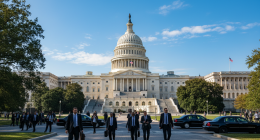Strong Resistance Against Entertainment Complex Bill
Intellectuals Rally Against Gambling Legalization
Thammasat University lecturers, alongside former constitution drafters and medical professionals, have voiced strong opposition to the government’s Entertainment Complex Bill. This controversial legislation, which includes provisions for legalizing casinos, has sparked widespread protests and criticism from academic and civic groups. Critics argue that the bill could lead to long-term societal harm, including increased crime rates, family instability, and economic inequality.
Academic Concerns Over Societal Impact
Casinos Predicted to Cause Social Disruptions
Economic lecturers at Thammasat University have expressed grave concerns about the potential consequences of legalizing casinos within entertainment complexes. They warn that gambling could exacerbate crime rates, destabilize families, and negatively affect children’s futures. Additionally, they highlight the risk of these complexes becoming hubs for money laundering activities, further undermining societal stability.
National Development Philosophy at Stake
Bill Contradicts Sufficiency Economy Principles
Opponents argue that the bill contradicts Thailand’s sufficiency economy philosophy—a cornerstone of national development rooted in sustainable practices. Critics claim that transforming state-owned land into entertainment complexes would prioritize private profit over public welfare, violating the principles of state property management and undermining national strategies.
Medical Professionals Join Opposition
Doctors Warn of Long-Term Cultural Damage
Twenty-seven doctors from Chiang Mai University have joined the opposition, emphasizing Thailand’s rich natural resources and cultural heritage. They caution that introducing casinos could lead to long-term societal discord for future generations. Their stance aligns with broader concerns about the moral and social implications of gambling legalization.
Academic Networks Mobilize Against Legislation
Universities Plan Demonstrations
The Network of Universities for Reform, led by Wirangrong Dabbaransi of Chulalongkorn University, has organized a demonstration to oppose the bill. Scheduled for Tuesday, this gathering aims to amplify academic and public skepticism toward the legislation. Participants will highlight the bill’s potential to harm Thailand’s social fabric.
Economic Benefits Questioned
Short-Term Gains vs Long-Term Risks
Proponents of the Entertainment Complex Bill have touted its potential economic benefits, including increased tourism revenue. However, critics argue that any financial uplift would be short-lived and insufficient to offset the broader societal costs. They stress that sustainable economic solutions should be prioritized over risky ventures like casino legalization.
Public Outcry Intensifies
Protesters Demand Government Accountability
Protests against the bill have gained momentum across Thailand. Demonstrators argue that the government is rushing the legislation without adequately considering public opinion. Activists warn that casinos could lead to moral decline and social consequences that outweigh any economic advantages.
Calls for Transparency and Oversight
Academics Advocate Referendum on Policy
Academics have recommended conducting a national referendum to gather public feedback on the Entertainment Complex Bill. They emphasize the need for strict regulations to prevent corruption, monopolies, and societal harm. Lessons from Singapore’s successful casino model highlight the importance of robust safeguards, including visitor restrictions and support systems for gambling addicts.
Ultimatum Issued to Government
Opposition Warns Against Ignoring Public Concerns
Critics have delivered a stern ultimatum: if the government continues pushing this controversial bill, it risks losing its legitimacy to govern. With opposition mounting from intellectuals, professionals, and civic groups alike, the Entertainment Complex Bill faces significant hurdles in gaining public and parliamentary approval.









